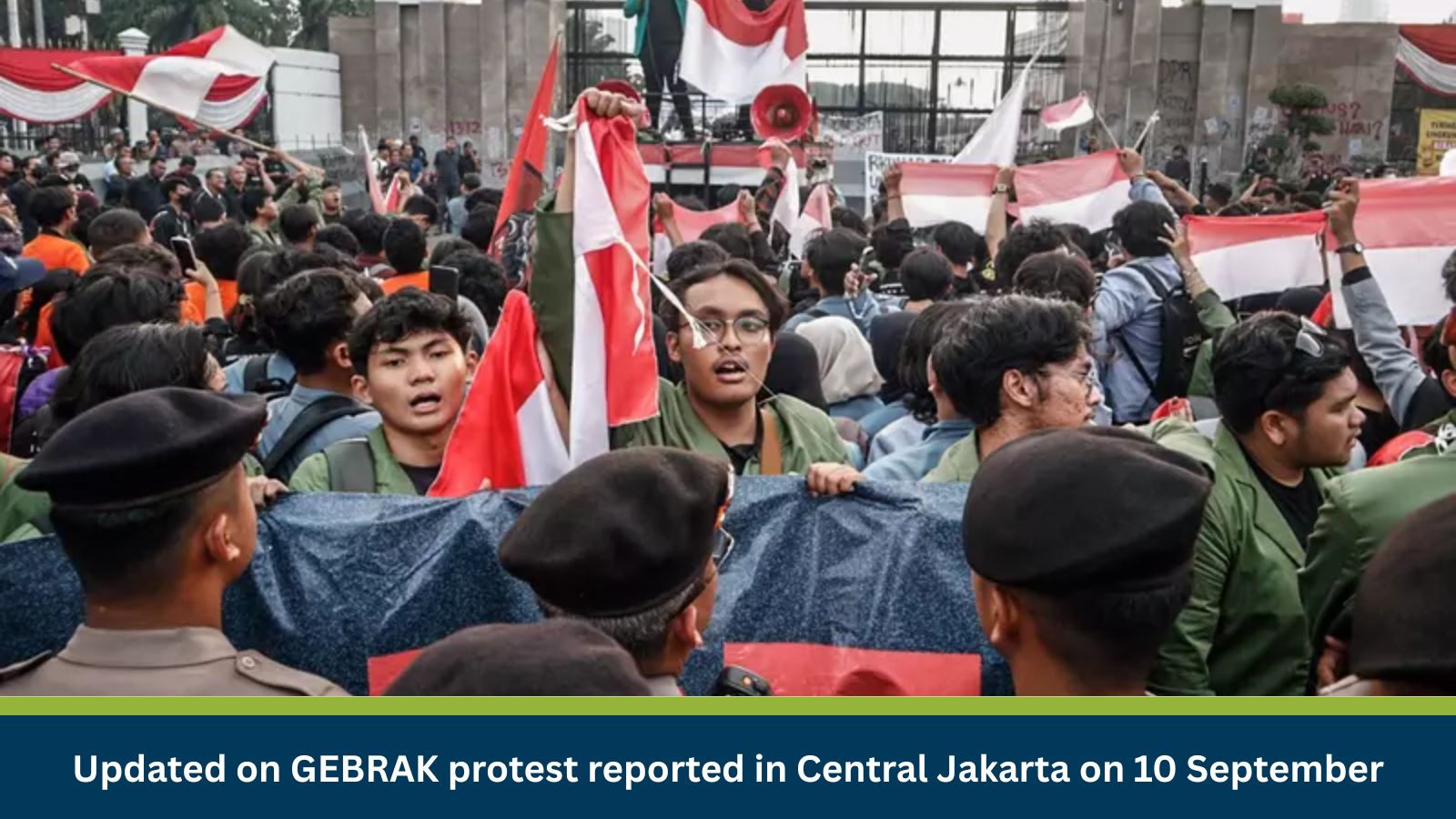What is Risk Analysis in the Context of Natural Disasters?
This report provides a risk analysis for a natural disaster in the form of widespread flooding in Bali, Indonesia. The analysis helps organizations prepare for operational challenges related to widespread transport disruption, business continuity, and employee safety in response to the flooding.
Executive Summary
- Date of Incident: 10 September 2025
- Location: Patung Kuda, Gambir, Central Jakarta, Indonesia
- Risk Category: Civil Disturbance
- Severity Score: 3/5
- Confidence Level: 85%
A significant labor protest by GEBRAK is reported in Central Jakarta on Wednesday, September 10, 2025. This protest is expected to cause immediate, significant disruption for the next 24-48 hours, primarily due to severe traffic congestion, localized business operational delays, and potential for minor public safety incidents.
Impact on Transportation and Services
- Travel & Mobility: There is a high risk to travel and mobility, causing significant road closures and traffic diversions around Patung Kuda, Monas, and towards the Presidential Palace.
- People Safety: A moderate risk of injuries is present due to potential clashes with security forces or minor altercations among participants, though serious fatalities are rare for this type of protest.
- Business Operations: Businesses in Central Jakarta will likely experience moderate disruption due to reduced foot traffic, delayed employee commutes, and difficulties in delivery and logistics.
- Supply Chain & Logistics: Supply chain and last-mile logistics operations will face moderate delays due to road closures and severe traffic congestion.
- Asset Security: The risk of significant asset damage is low, but minor incidents such as burning tires or superficial vandalism are possible.
Recommended Actions
- Implement a ‘Work-from-Home’ Directive: Immediately activate a work-from-home policy for all non-essential personnel stationed within a 3km radius of protest hotspots.
- Activate Heightened Security Protocols: For all physical assets and office premises in Central Jakarta, secure all ground-level entry points and deploy additional on-site security personnel.
- Leverage Remote Work Capabilities: For critical services, activate pre-planned contingency routes and schedules that bypass protest-affected zones.
- Proactively Communicate: Establish a consistent communication channel to provide regular, transparent updates to employees, clients, and key suppliers regarding operational status and safety advisories.
- Review Emergency Response Plans: Conduct a rapid review of building-specific emergency response and evacuation plans, ensuring all on-site staff are aware of safe zones and emergency exits.
Final Thoughts
The baseline scenario anticipates the GEBRAK protest to remain largely peaceful and contained, with demonstrators dispersing by late evening. However, a moderate escalation could see the protest extend beyond its planned duration, leading to increased tensions and prolonged road closures. This could result in significant disruption to business operations and an increased risk of minor injuries. A severe escalation, while a low-probability event, could involve significant confrontations with security forces, widespread vandalism, and a total lockdown of key areas in Central Jakarta. Businesses should prepare for the baseline scenario while closely monitoring for signs of escalation to trigger more comprehensive contingency plans.
Stay ahead of operational risks with real-time alerts, scenario modeling, and expert advisories with datasurfr’s Predict. Start your 14-day free trial of Datasurfr’s Risk Intelligence Platform today.






